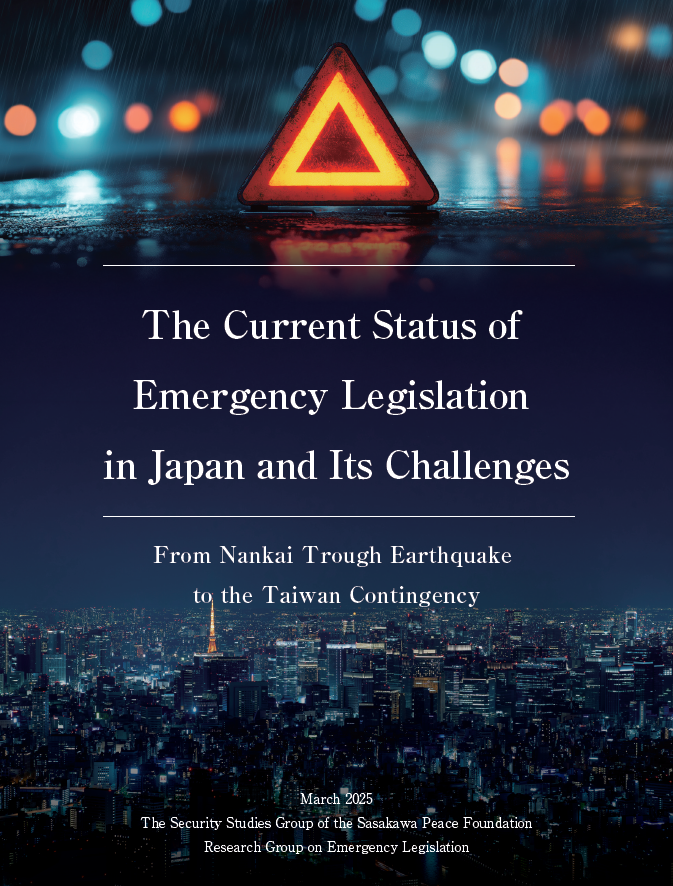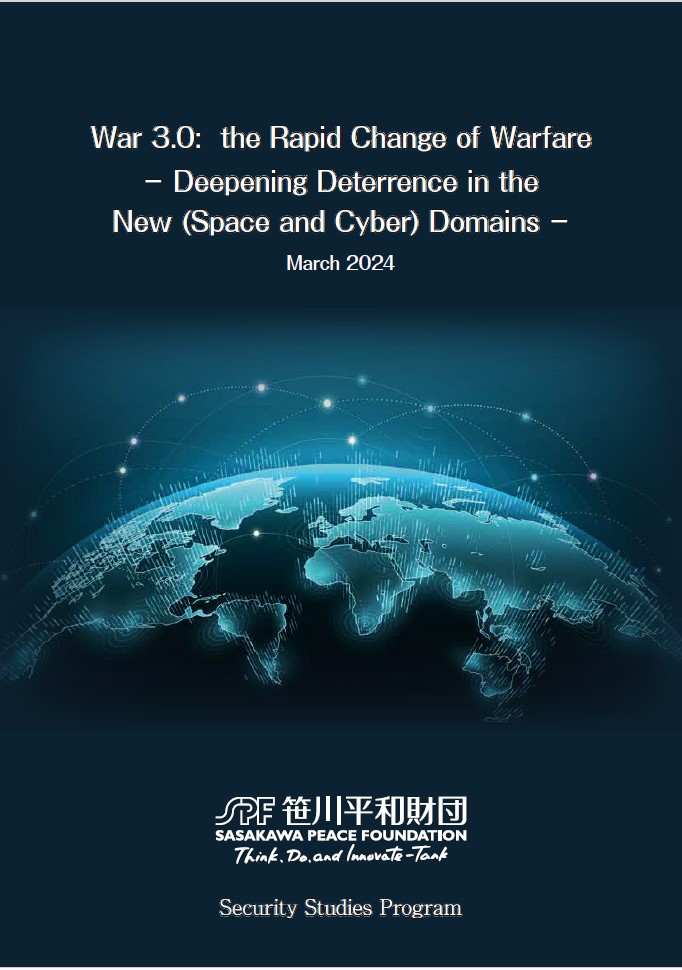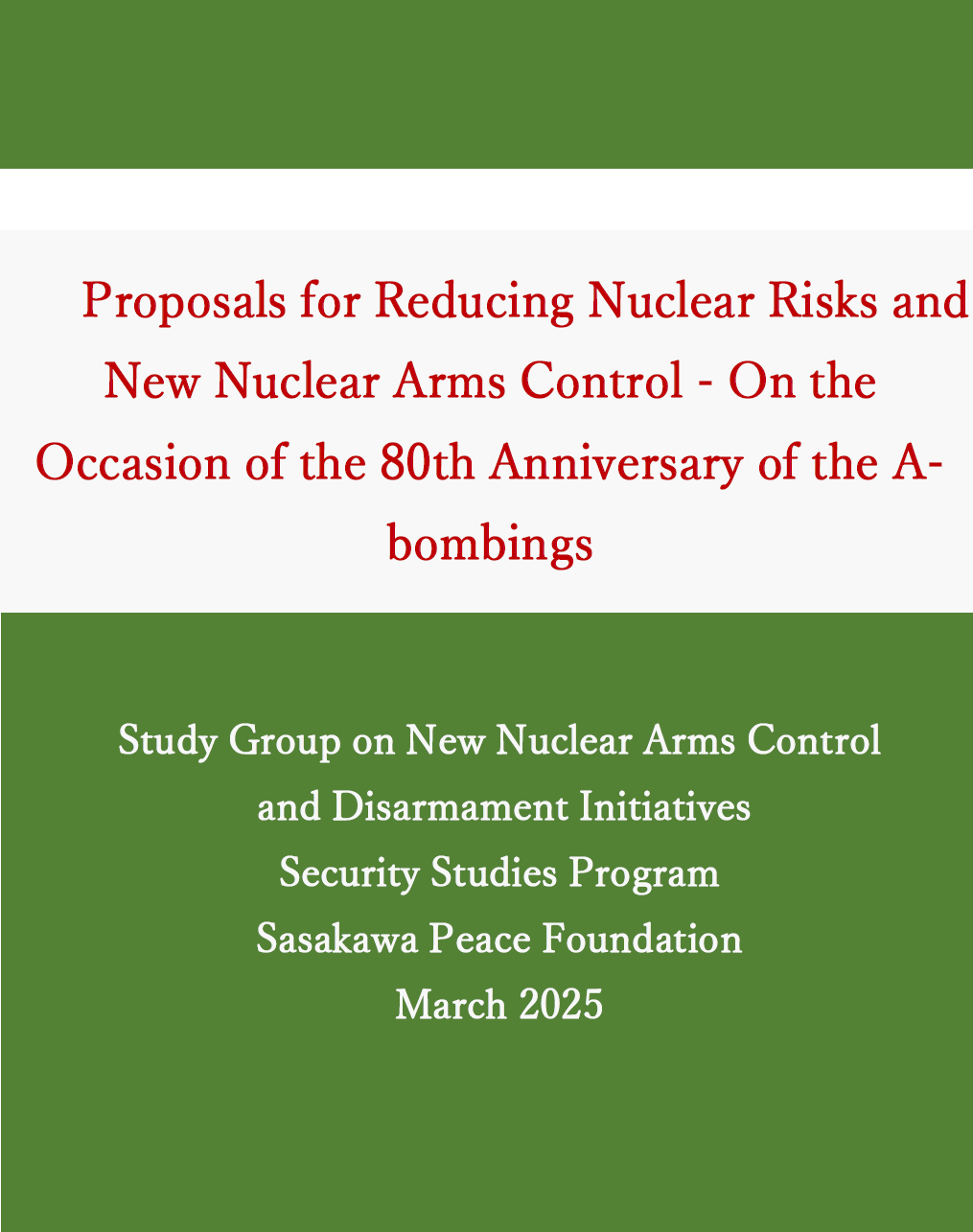
War 3.0: the Rapid Change of Warfare
Deepening Deterrence in the New (Space and Cyber) Domains
April 10, 2025
In contemporary war, the importance of not only the three traditional domains of land, sea, and air, but also of such “new domains” as space and cyber domains is increasing. Reliance on these domains is growing when it comes to the exercise of military operations, and a loss of superiority in these new domains is coming to be seen as fatal. For that reason, the premise behind contemporary military operation is that they are to be implemented as a Multi-Domain Operation (MDO), which necessarily includes space and cyber domains. At the same time, the issue of how to achieve deterrence (or escalation control) in wars involving operations in new domains is also of growing interest.
Considering this, the Security Studies Program established a “Deterrence in the New Domains Study Group” composed of nine experts in deterrence and space/cyber domains. In the activities in the past few years, the Study Group has conducted various investigations related to “Deterrence in the New Domains.” The present report is one part of its findings.
Using the concept of “War 3.0,” in this report, the Study Group pursue the characteristics of war in the present age. In keeping with the growing importance of such new domains as space and cyber domains, we investigate how various issues surrounding deterrence may change. Specifically, through having played out a scenario game two times (please refer to the appendix at the end of the report), it has become clear that the impacts of the new domains are particularly notable at the gray zone stage just short of an armed attack. We emphasize that among this attention should be paid in particular to “the effects of new domains on law enforcement agencies that are at the center of dealing with a gray zone” and “the impact on escalation dynamics of new domains being added to the process of escalation from gray zone to armed conflict.”
In addition, the present report attempts an analysis of “Deterrence in the new domains” from diverse perspectives. The points under discussion are wide-ranging and include sorting out the concepts of deterrence and new domains, how to approach deterrence in the space domain, how to approach deterrence in the cyber domain, the issue of cyber operations by Japan and the U.S. in a Taiwan contingency, and the evolution of air and space power and deterrence.
There are many arguments that emphasize the importance of new domains in contemporary military operations, but one senses that there are not many in which directly take up the relationship between new domains and deterrence (or escalation control). For Japan standing on the frontlines of “competition among great powers” including Taiwan strait contingency, the Study Group would have no greater joy than if the present report could contribute greatly to the debate over “Deterrence in the new domains.”
For the text of the final report, please click here.
※You can read Japanese version here.
Considering this, the Security Studies Program established a “Deterrence in the New Domains Study Group” composed of nine experts in deterrence and space/cyber domains. In the activities in the past few years, the Study Group has conducted various investigations related to “Deterrence in the New Domains.” The present report is one part of its findings.
Using the concept of “War 3.0,” in this report, the Study Group pursue the characteristics of war in the present age. In keeping with the growing importance of such new domains as space and cyber domains, we investigate how various issues surrounding deterrence may change. Specifically, through having played out a scenario game two times (please refer to the appendix at the end of the report), it has become clear that the impacts of the new domains are particularly notable at the gray zone stage just short of an armed attack. We emphasize that among this attention should be paid in particular to “the effects of new domains on law enforcement agencies that are at the center of dealing with a gray zone” and “the impact on escalation dynamics of new domains being added to the process of escalation from gray zone to armed conflict.”
In addition, the present report attempts an analysis of “Deterrence in the new domains” from diverse perspectives. The points under discussion are wide-ranging and include sorting out the concepts of deterrence and new domains, how to approach deterrence in the space domain, how to approach deterrence in the cyber domain, the issue of cyber operations by Japan and the U.S. in a Taiwan contingency, and the evolution of air and space power and deterrence.
There are many arguments that emphasize the importance of new domains in contemporary military operations, but one senses that there are not many in which directly take up the relationship between new domains and deterrence (or escalation control). For Japan standing on the frontlines of “competition among great powers” including Taiwan strait contingency, the Study Group would have no greater joy than if the present report could contribute greatly to the debate over “Deterrence in the new domains.”
For the text of the final report, please click here.
※You can read Japanese version here.

